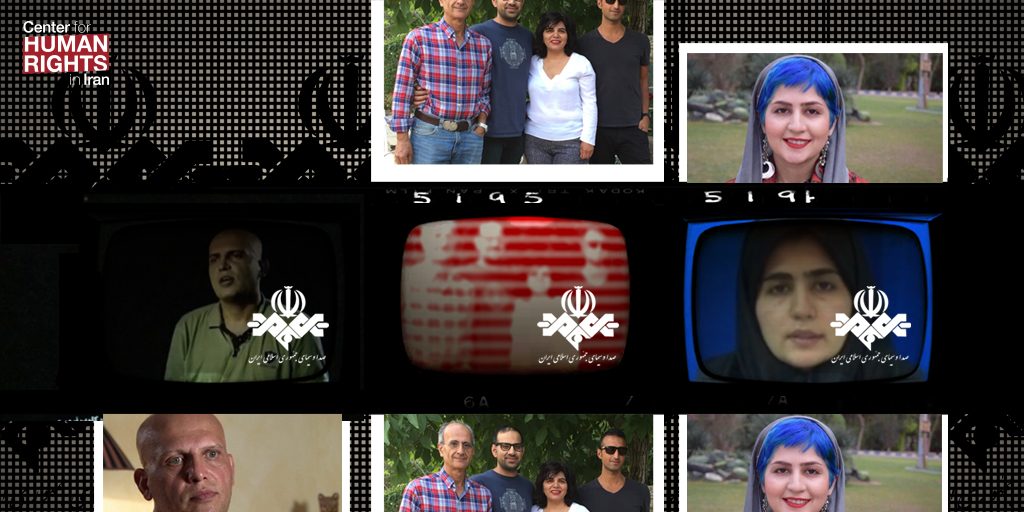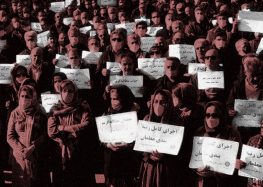No Action Yet in Parliament on Bill to Ban Broadcast of Confessions During Investigations

Bill Does Not Ban Extraction of Confessions, They Can Still Be Used at Later Stages
An Iranian parliamentary bill that aims to stop state-funded media outlets from airing forced “confessions” during the investigative phase appears at a standstill more than a month after it was introduced by Member of Parliament (MP) Mahmoud Sadeghi.
The legislative proposal, “Bill Banning Recording and Broadcasting the Confessions of Individuals on the Islamic Republic of Iran Broadcasting Organization and Other Media,” introduced by the reformist MP representing Tehran on September 29, 2019, has not been scheduled for deliberation more than one month later.
In an interview with the Saat24 news site on October 6, 2019, Motahhari said: “This is a good and necessary legislation and I am one of the signatories. In reality, we don’t need to have a law about this because such acts are prohibited by our Constitution. But Article 3 of the Constitution about the rights of the people is being ignored and therefore we have to pass a law.”
The parliament’s secretariat has confirmed that the bill has been received. In open session on November 4, 2019, Ali Asghar Yousefnejad, a member of the parliament’s secretariat, confirmed that four bills had been formerly received from lawmakers, including Sadeghi’s. This means the legislative process has been initiated, although it is not clear when deliberations will begin at the committee stage.
In interviews with the Center for Human Rights in Iran (CHRI), attorney Abdolsamad Khorramshahi said the legislation would reaffirm constitutional rights, while attorney Nemat Ahmadi noted that Iran’s Criminal Procedures Regulations already prohibit the airing of coerced, false “confessions.”
Iran’s state TV and radio broadcasting agency, the Islamic Republic of Iran Broadcasting (IRIB), works with security and intelligence officials to extract false “confessions” from detainees held on politically motivated charges. The confessions are often elicited under physical and/or psychological torture and then aired on state TV in order to discredit detainees before the public and convict them.
Sadeghi’s bill states that those found guilty of recording and broadcasting “confessions of individuals at any stages of judicial investigations” would be sentenced to prison from six months up to three years.
It adds: “If it is determined that the recording or broadcasting of such confessions was ordered by authorities or officials in other state agencies, the relevant authority or official, in addition to the above punishment, will be banned from state employment from one to five years.”
While the bill is against recording and broadcasting such confessions during the investigative stage, it does not ban their extraction, and they may indeed continue to be used at later stages.
“We do not have a legal vacuum in Iran in this regard, but there’s always a problem with authorities who disregard the law” Ahmadi told CHRI. “The Criminal Procedures Regulations does not even allow the names of suspects to be made public before the case has been adjudicated. Initially it was common for the authorities to give the initials for the suspects’ names but now the law is being treated in an arbitrary fashion.”
Ahmadi continued: “Based on the Constitution and the Criminal Procedures Regulations, not only is it unlawful to record and broadcast confessions, but getting confessions in front of a camera is by itself illegal. If I’m charged with a crime, the prosecutor is supposed to investigate in order to find the truth but he cannot make me sit in front of a camera and ask me to incriminate myself.
“This is not only against the Criminal Procedures Regulations, but also a violation of many articles in the Constitution… which prohibit gathering statements under torture, or other forms of coercion, and do not allow the authorities to play with the suspects’ reputation.”
Article 37 of the Constitution states, “Innocence is to be presumed, and no one is to be held guilty of a charge unless his or her guilt has been established by a competent court.”
According to Article 38, “All forms of torture for the purpose of extracting confession or acquiring information are forbidden. Compulsion of individuals to testify, confess, or take an oath is not permissible; and any testimony, confession, or oath obtained under duress is devoid of value and credence. Violation of this article is liable to punishment in accordance with the law.”
In addition, according to Article 39, “All affronts to the dignity and repute of persons arrested, detained, imprisoned, or banished in accordance with the law, whatever form they may take, are forbidden and liable to punishment.”
In Ahmadi’s opinion, the bill introduced by Sadeghi seems rushed and geared toward courting favor amongst the public before parliamentary elections in February 2020.
“[These bills] suddenly appear without being developed in a cohesive manner,” Ahmadi told CHRI. At the end of their parliamentary terms, MPs introduce a few of these bills that are intended to create a sensation rather than helping the public. Instead they could remind the Justice Minister about constitutional violations or demand the head of the Islamic Republic of Iran Broadcasting (IRIB)… to stop broadcasting confessions.”
In addition, according to Article 90 of the Constitution, “Whoever has a complaint concerning the work of the Assembly or the executive power, or the judicial power can forward his complaint in writing to the Assembly. The Assembly must investigate his complaint and give a satisfactory reply. In cases where the complaint relates to the executive or the judiciary, the Assembly must demand proper investigation in the matter and an adequate explanation from them, and announce the results within a reasonable time. In cases where the subject of the complaint is of public interest, the reply must be made public.”
Attorney Abdolsamad Khorramshahi noted other points. “When President Rouhani introduced the Citizens’ Rights Charter or when the judiciary did something similar, they didn’t say anything beyond what’s in the Constitution. This bill is also just a reminder and a reiteration that the Constitution and the Criminal Procedures Regulations should be observed,” Khorramshahi said.
He added: “When a crime has not been proven in court, recording and broadcasting confessions made by suspects is not only a violation of their right to defense as citizens but are also useless. People have come to the conclusion that suspects should be given a fair trial but prior to that, if they make any statements against themselves, it’s probably done against their will.
“In other words, no sane person would confess to anything against himself unless he has been pressured. In the eyes of the public, these kinds of confessions are counter-productive and a bill which prohibits recording and broadcasting them would be a step toward protecting the rights of suspects and reiterating Constitutional and legal prohibitions against any form of physical or psychological torture.
“In particular, Article 91 of the Criminal Procedures Regulations clearly states that publishing the image or identity of a suspect by the media during the investigation stage is prohibited.
In the introduction of his bill, MP Sadeghi noted that according to Article 39 of the Constitution, the dignity and reputation of suspects should be protected and yet “unfortunately we see that the IRIB has been broadcasting confessions made by suspects who could be proven innocent at the end of the judicial procedures. This not only destroys their reputation, but also seriously undermines the people’s trust in the legitimacy of state institutions.”
He added that Sadeghi’s bill was specifically aimed at political and security cases, such as confessions made in a program that was aired by the IRIB on August 5, 2012, titled “The Assassination Club,” about the killing of Iranian nuclear scientists. Recently Iranian officials admitted that the confessions were false.
In August 2019, Mazyar Ebrahimi, one of the individuals who had “confessed” to having a hand in the nuclear assassinations, told the BBC that he and other innocent people had been tortured and forced into making false statements for the 2012 IRIB program.
Following the interview, a number of MPs demanded an explanation and called on the Intelligence Ministry to apologize to the victims.
Over the years, in violation of domestic and international laws, the IRIB has aired many “confessions” made by dissidents and political activists. The victims are often subjected to torture and threats against themselves and their families in order to extract these statements.
Even after the introduction of Sadeghi’s bill, the state broadcaster has aired two more “confessions,” one by Rouhollah Zam, the founder of the opposition news network, Amad News, and the other by an Iranian Instagram personality known as “Sahar Tabar,” who became famous for dramatic alterations of her face.
“We still don’t know what Mr. Zam has been accused of, or what is the legal basis for his arrest,” attorney Ahmadi told CHRI. “Broadcasting his confessions on the IRIB has been in violation of several laws.”
The lawyer added: “These kinds of programs and confessions should have no bearing on such cases because they are specifically made to scare the public. If someone changes the way her face looks, what law has she broken? …Did this woman [Sahar Tabar] commit a crime for having surgery to make herself look ugly?… These forced confessions are continuing because no action has been taken to confront those who carry them out and broadcast them.”
Read this article in Persian.






